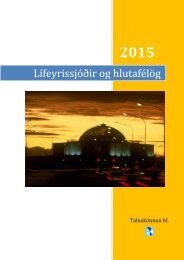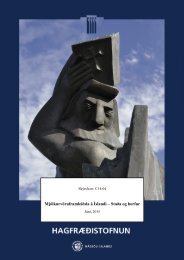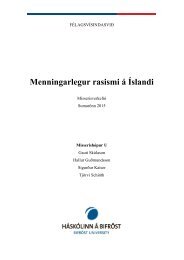You also want an ePaper? Increase the reach of your titles
YUMPU automatically turns print PDFs into web optimized ePapers that Google loves.
WORLD REPORT 2016<br />
HUMAN RIGHTS WATCH<br />
missed the criminal case against a former vice minister of interior and at least 10<br />
members of the National Police whom the Ombudsman’s Office had implicated<br />
in the violations.<br />
The lack of justice has led to mob attacks (or “lynchings”) against citizens or police<br />
officers believed responsible for crimes. Ten people were killed in lynchings<br />
from January to November 2014, according to the UN High Commissioner for<br />
Human Rights. In September 2015, a mob tied a suspected criminal to a pole and<br />
beat him to death in El Alto, according to press reports. Impunity for lynchings<br />
remains the norm.<br />
Military Abuses and Jurisdiction<br />
Human rights violations against soldiers remain a problem. The Ombudsman’s<br />
Office reported that four soldiers died on military premises between January and<br />
August 2015, and no one has been held accountable for their deaths.<br />
The Constitutional Court ruled in 2012 that a civilian court should have jurisdiction<br />
in the case of a conscript who died in 2011 following a combat training exercise<br />
during which instructors allegedly beat him on the head and chest. The<br />
court urged lawmakers to reform Bolivia’s military justice code to ensure that<br />
human rights violations are heard in civilian courts. In August 2015, a civilian<br />
court convicted three military officers for the conscript’s death, but, at time of<br />
writing, the code had not been reformed.<br />
Judicial Independence<br />
The Bolivian justice system has been plagued by corruption, delays, and political<br />
interference for years. The 2009 constitution provided for judicial elections to<br />
overhaul Bolivia’s highest courts, but the Plurinational Assembly selected candidates<br />
through a process that lacked transparency and did not adequately consider<br />
their qualifications. In January 2015, President Morales announced a new<br />
judicial reform process, but the government has not yet defined its scope.<br />
Due Process and Prison Conditions<br />
As of June, 78 percent of inmates in Bolivian prisons had not been convicted of a<br />
crime. Extended pretrial detention and trial delays have led to increased over-<br />
crowding and poor conditions in prisons. As of May, there were 13,793 inmates<br />
in prisons with a maximum capacity of 5,126.<br />
A 2014 law decreased the maximum periods of pre-trial detention in most cases,<br />
but eliminated the maximums for certain crimes. Decrees adopted since 2012<br />
allow the president to reduce the sentences of those convicted of crimes and<br />
pardon those in pretrial detention for minor crimes. As of August, more than<br />
3,300 people had benefited from the changes.<br />
Human Rights Defenders<br />
Human rights defenders continue to face harassment and threats, including from<br />
government officials, undermining their ability to work independently.<br />
In 2013, President Morales signed a law and adopted a decree granting the government<br />
broad powers to dissolve civil society organizations. Under the decree,<br />
any government office may request that that Ministry of Autonomy revoke an organization’s<br />
permit if it performs activities different from those listed in its bylaws,<br />
or if the organization’s legal representative is criminally sanctioned for<br />
carrying out activities that “undermine security or public order.” As of September<br />
2015, a case brought by the Ombudsman’s Office challenging both provisions<br />
was still pending before the Constitutional Court.<br />
In August 2015, Vice President García Linera accused four Bolivian NGOs of trying<br />
to “impede the development” of Bolivia; in June, President Morales said that any<br />
international NGO engaged in activities “detrimental to the exploitation of natural<br />
resources would have to leave Bolivia.”<br />
In 2013, the government expelled the Danish nongovernmental organization<br />
IBIS, which had worked with indigenous groups, accusing it of engaging in “political<br />
interference.”<br />
Freedom of Expression<br />
While public debate is robust, the Morales administration periodically lashes out<br />
at journalists, accusing them without basis of publishing what it calls lies and<br />
politically motivated distortions. In September, the minister of the presidency<br />
accused local outlets of participating in an international conspiracy against Bolivia<br />
and President Morales.<br />
120<br />
121










